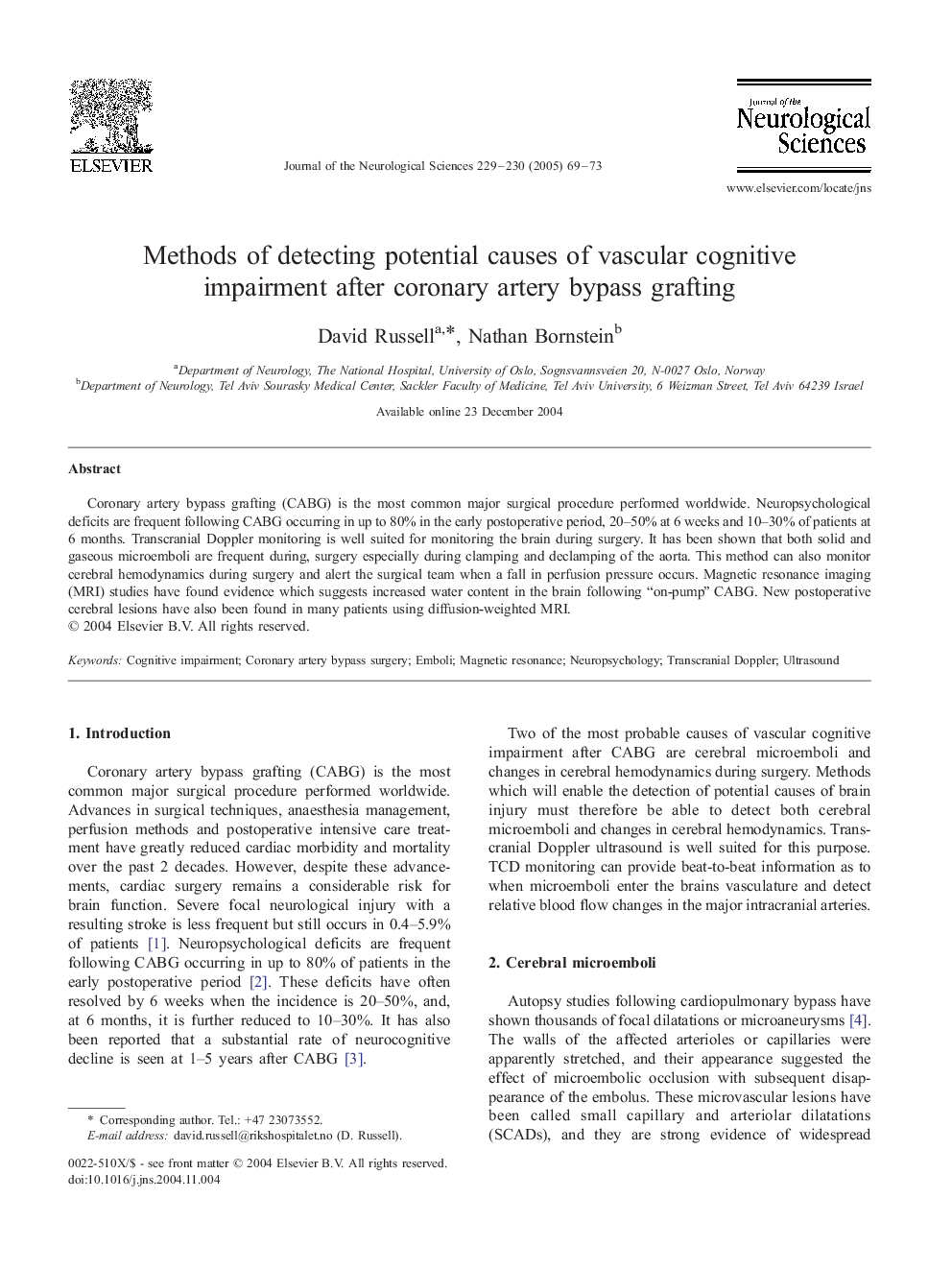| Article ID | Journal | Published Year | Pages | File Type |
|---|---|---|---|---|
| 9880396 | Journal of the Neurological Sciences | 2005 | 5 Pages |
Abstract
Coronary artery bypass grafting (CABG) is the most common major surgical procedure performed worldwide. Neuropsychological deficits are frequent following CABG occurring in up to 80% in the early postoperative period, 20-50% at 6 weeks and 10-30% of patients at 6 months. Transcranial Doppler monitoring is well suited for monitoring the brain during surgery. It has been shown that both solid and gaseous microemboli are frequent during, surgery especially during clamping and declamping of the aorta. This method can also monitor cerebral hemodynamics during surgery and alert the surgical team when a fall in perfusion pressure occurs. Magnetic resonance imaging (MRI) studies have found evidence which suggests increased water content in the brain following “on-pump” CABG. New postoperative cerebral lesions have also been found in many patients using diffusion-weighted MRI.
Keywords
Related Topics
Life Sciences
Biochemistry, Genetics and Molecular Biology
Ageing
Authors
David Russell, Nathan Bornstein,
